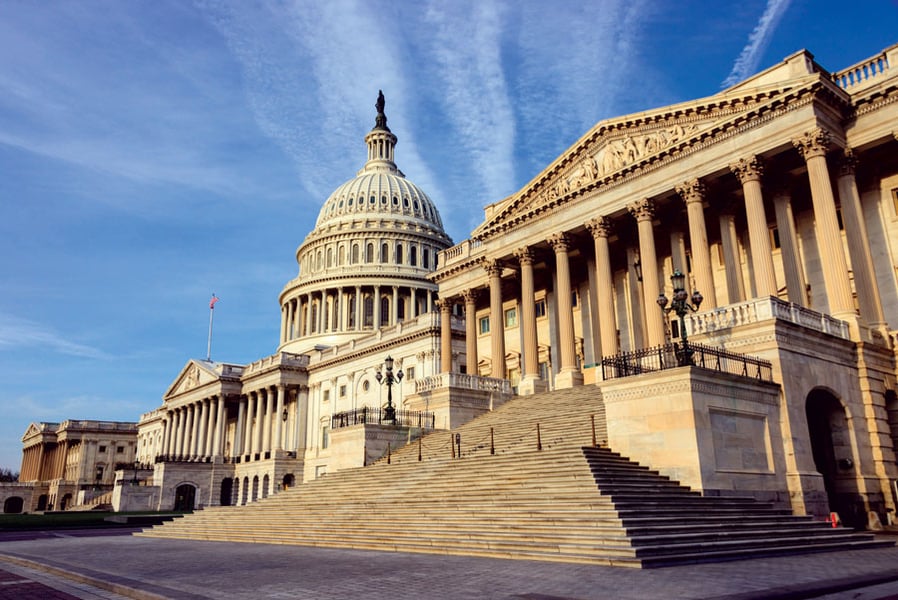

A massive bill designed to stem the economic hemorrhaging caused by the COVID-19 pandemic has secured bipartisan House approval in a voice vote on Friday, but is getting mixed reviews from financial advisers.
The $2.2 trillion behemoth, the Coronavirus Aid, Relief, and Economic Security Act, is slated to send one-time payments of up to $1,200 to many individuals, boost unemployment benefits, provide loan guarantees and grants to large and small businesses, increase health-care spending and reduce personal and business taxes.
The Senate approved the measure unanimously earlier this week. President Donald Trump to signed the into law on Friday.
The scope of the 883-page bill encompasses many dimensions of an economy that has ground to a halt during the coronavirus outbreak.
“That’s the most fiscal stimulus I’ve ever seen,” said Leon LaBrecque, chief growth officer at Sequoia Financial Group. “If it doesn’t work, I don’t know what would.”
Andrew Schwartz, senior vice president of Madison Planning Group in White Plains, N.Y., has had five clients come down with the coronavirus. He supports the congressional response.
“It’s something that needs to be done,” Schwartz said. “If you want an engine to run, you have to give it fuel. Cash is the fuel that drives our economy.”
Other advisers are skeptical the legislation will restart the economy.
“The bill is not going to help corporate earnings,” said Eric Powell, founder of RightPlan Financial in Lakeland, Fla. “This money may not be utilized to boost the economy as a whole by [consumers] buying products. Instead, the money is being used to pay rent, mortgages and things of that nature.”
The stimulus bill is the third measure Congress will have approved over the last several weeks to address health care and other challenges presented by the virus. The Federal Reserve has also cut interest rates during that time.
That one-two punch is misguided because it will diminish the value of the dollar, said Mike Caligiuri, founder of Caligiuri Financial in Columbus, Ohio.
“It’s an illogical economic fallacy that just printing money is going to solve our problems," Caligiuri said. “Printing money doesn’t lead to more goods and services for everyone. This is just a massive bailout. It’s ultimately going to lead to hyperinflation … and everyone’s going to be worse off.”
The stimulus package makes several changes to retirement savings policy that allow participants to access cash for emergencies. Similar steps have been taken in the past in response to hurricanes and other natural disasters.
The measure would waive the 10% penalty on early withdrawals from retirement plans for people who have been impacted by the coronavirus and allow them to put the money back into the plan — and pay taxes on the gains — over three years. Another provision would increase the ceiling on loans against a retirement plan to $100,000 or 100% of a plan, whichever is smaller.
Another provision would waive required minimum distributions this year for certain 401(k) and individual retirement accounts. The distributions would have been required for those 72 and older.
Schwartz likes the RMD change because it will allows retirees to keep money in their plans rather than taking it out in a market hammered by the coronavirus.
“You’re able to reinvest that money now,” Schwartz said.
Some advisers expressed worries that Congress is foisting a $2.2 trillion measure on top of a deficit that is already hovering around $1 trillion.
LaBrecque shares those qualms but said this is a unique moment.
“This isn’t the time to be a deficit hawk,” he said.

A new proposal could end the ban on promoting client reviews in states like California and Connecticut, giving state-registered advisors a level playing field with their SEC-registered peers.

Some in the industry say that more UBS financial advisors this year will be heading for the exits.

The Wall Street giant has blasted data middlemen as digital freeloaders, but tech firms and consumer advocates are pushing back.

Research reveals a 4% year-on-year increase in expenses that one in five Americans, including one-quarter of Gen Xers, say they have not planned for.

Raymond James also lured another ex-Edward Jones advisor in South Carolina, while LPL welcomed a mother-and-son team from Edward Jones and Thrivent.
Orion's Tom Wilson on delivering coordinated, high-touch service in a world where returns alone no longer set you apart.
Barely a decade old, registered index-linked annuities have quickly surged in popularity, thanks to their unique blend of protection and growth potential—an appealing option for investors looking to chart a steadier course through today's choppy market waters, says Myles Lambert, Brighthouse Financial.
